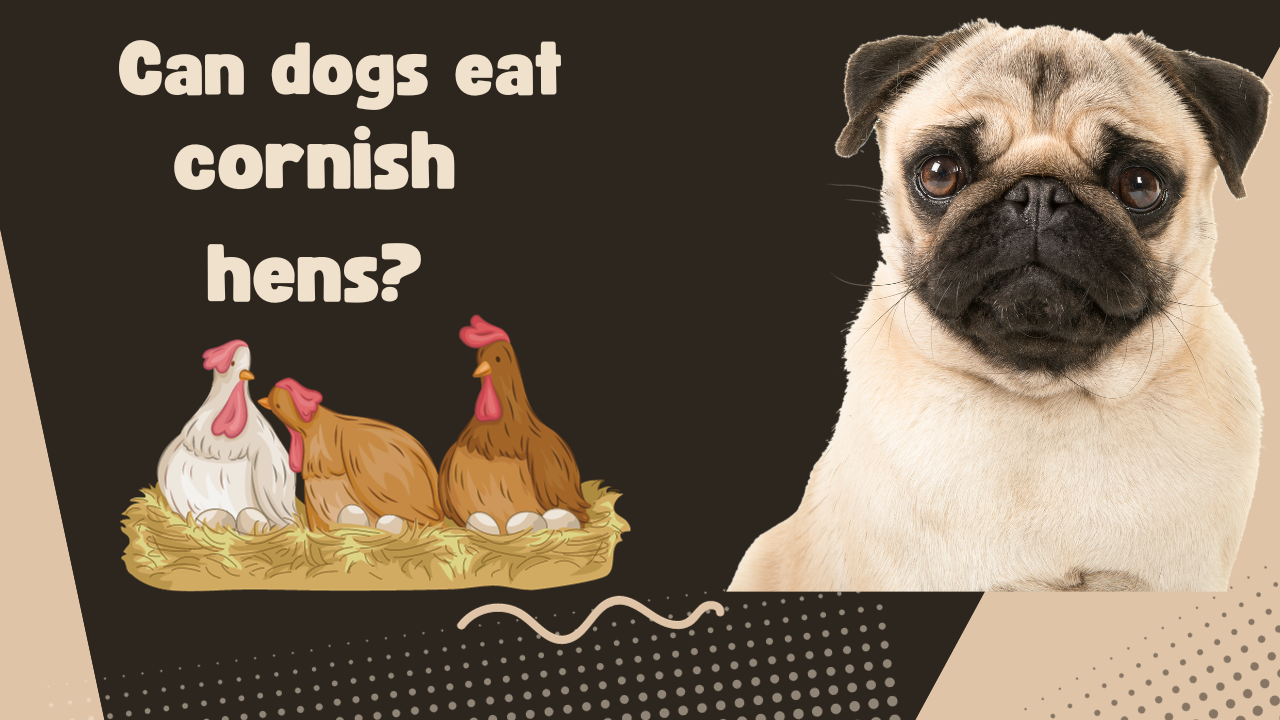Dogs, our lovable companions, often make us question what’s safe for them to consume. One question frequently arises: “Can dogs eat cornish hens?“. In this comprehensive guide, we’ll navigate the nutritional aspects, potential risks, and safe practices associated with feeding Cornish hens to our furry friends.
Many dog owners grapple with deciding what to feed their pets, especially when it comes to unconventional treats like Cornish hens. The concern for the well-being of our dogs prompts us to delve into the nutritional intricacies of these poultry delights.
Nutritional Value of Cornish Hens
Like other poultry, Cornish hens boast a rich profile of essential nutrients. Proteins, vital for muscle development and overall health, are abundant. Additionally, Cornish hens contain crucial vitamins and minerals, including vitamin B6, niacin, phosphorus, and selenium. Understanding the nutritional value becomes crucial for making informed decisions about incorporating these treats into our dogs’ diets.
Do Read: Can Dogs Eat Coconut Rice?
Cooked vs. Raw Cornish Hens for Dogs
The ongoing debate over whether to feed dogs cooked or raw diets extends to Cornish hens. While some argue for the benefits of raw feeding, it’s essential to recognize potential risks, such as bacterial contamination, associated with raw meat consumption. Cooked Cornish hens offer a safer alternative, with proper cooking eliminating harmful bacteria. However, the cooking process may reduce some of the nutrient content, emphasizing the importance of a balanced diet.
Benefits of Feeding Cornish Hens to Dogs
Cornish hens can offer a protein-packed treat in moderation for our canine companions. Proteins are crucial in maintaining healthy dogs’ skin, muscles, and organs. Additionally, Cornish hens provide essential vitamins and minerals that contribute to overall well-being. Phosphorus, for instance, supports bone health, while selenium is a powerful antioxidant. Understanding these benefits is essential for making informed choices about our dogs’ diets.
Potential Risks and Precautions
As with any indulgence, there are risks involved in feeding Cornish hens to dogs. Small and brittle bones in Cornish hens can pose a choking hazard and may lead to digestive issues. In addition to bone-related risks, some dogs may have allergies to poultry. Symptoms of allergies can include itching, digestive upset, or respiratory problems. Taking precautions, such as removing bones and monitoring for allergic reactions, becomes imperative for the safety of our pets.
Safe Cooking Practices
Preparing Cornish hens for dogs requires careful consideration. Bone removal and avoiding seasonings are paramount to ensure a safe culinary experience for our canine friends. Safe cooking practices, such as boiling or baking without added oils or spices, contribute to the enjoyment of this delicacy without compromising their health. Additionally, cooking the meat thoroughly eliminates the risk of bacterial contamination.
Moderation in Dog Diet
While the benefits of Cornish hens are apparent, moderation is key. Excessive fat content can lead to digestive upset and contribute to dog obesity. Removing the skin and excess fat ensures a well-balanced treatment. To maintain a diverse and balanced diet for our dogs, it’s crucial to complement protein-rich treats like Cornish hens with other food groups. Vegetables and grains can provide additional nutrients and fiber, improving canine health.
Consulting a Veterinarian
Before introducing Cornish hens or any new food into your dog’s diet, consulting a veterinarian is wise. Professional advice considers your dog’s specific health needs, ensuring a tailored approach to their nutrition. Veterinarians can assess individual dietary requirements, address concerns about allergies, and provide personalized guidance on treatment options. Regular check-ups further contribute to our furry companions’ overall health and well-being.
Conclusion
In conclusion, whether dogs can eat Cornish hens involves a nuanced consideration of nutritional value, potential risks, and safe practices. By understanding the intricacies of canine dietary needs and implementing responsible ownership practices, we can treat our dogs to the occasional indulgence without compromising their well-being. A diverse and balanced diet and moderation in treats ensure that our furry friends lead happy and healthy lives.


